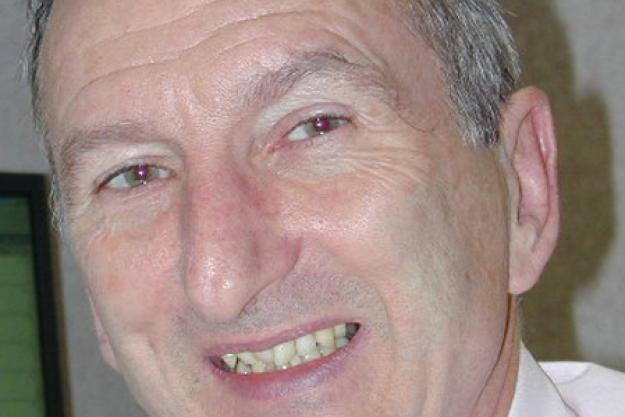
Neil Harvey is Issues Manager at the European Council for the Chemicals Industry (CEFIC), based in Brussels, Belgium
By: Neil Harvey, Issues Manager, CEFIC
Beginning in early 2007 I became involved with preparations for the Second Review Conference on the CWC as co-ordinator for the International Council of Chemical Associations (ICCA), which represents tens of thousands of chemical companies around the world. I participated in various UK, EU and Australia Group meetings that culminated in the Industry and Protection Forum held in The Hague in November 2007.
After expending all this time and effort I eagerly awaited the Second Review Conference, because if decisions were to be made there about non-proliferation policies I wanted to ensure that delegates understood their potential impact on industry. Industry representatives from India and USA would be present as well.
My objectives were to ensure that diplomats and regulators had a basic understanding of the chemical industry, and to explain how it was globally integrated and what measures were already in place to prevent toxic chemicals from getting into the wrong hands. I also aimed to engage delegates about CWC outreach and the strengths and weaknesses of different non-proliferation control mechanisms.
Industry’s views were laid out in a comprehensive policy statement prepared for the Review Conference which covers CWC-related issues such as Responsible Care, globalisation, the interrelationship between process safety, performance audits and security, and the importance of business confidentiality and more effective enforcement. I shall relate my perceptions on the dynamics of the Conference as an industry interloper.
I say “interloper” because industry representatives had no official status in the Conference and were only allowed to listen to statements in the plenary sessions. As industry compliance is at the heart of non-proliferation, I found it rather odd to say the least that industry’s views were confined to a 15-minute presentation slot in an “Open Forum” on the sidelines of the Conference.
During my preparation for the Conference I took advice from senior industry experts who had helped put together the original architecture of the CWC. Industry was fully engaged in that process, and the underlying principle governing the non-proliferation aspects of the CWC negotiations was that no commercial chemical facility was to be considered riskier than others. Our position then and now is that all it takes to convert any facility to illicit purposes is determination, know-how and resources. Verification under Article VI of the CWC is thus considered by chemical industry to be a confidence-building measure and is not meant to enforce compliance. On the contrary, it is expected that illicit chemical production would only take place in non-declared facilities.
Another challenge I encountered was jargon. The language used in OPCW events and publications such as this one is markedly different to that used in industry. Readers of Chemical Disarmament are familiar with terms like “non-proliferation”, “non-declared facilities”, “OCPFs” and “DOCs” but perhaps less familiar with “chemicals management”, “Responsible Care” and “fine chemicals”. Delegates of States Parties at the Conference used military and diplomatic language while industry representatives used chemical, technical and commercial terminology. This communication gap is not serious, but neither is it conducive to building harmonious relationships.
Another of my observations was that delegates used different benchmarks to measure success in achieving non-proliferation objectives. Delegates often discussed activities in the context of a specific CWC Article, and there were academic debates in the Open Forum about whether a certain action was covered by Article Y or Article Z. This sort of discussion has little relevance for the commercial world where performance rather than process is the order of the day. OPCW regulators, policy makers, lawyers and academics are totally focused on CWC issues but industry representatives, who may also be engaged with regulators on health, safety and environmental issues, cannot be expected to have the same depth of knowledge.
I do not want CWC policy makers and regulators operating in splendid isolation. As an industry we work on chemicals management issues with regulators across the world and perhaps the OPCW could do likewise. The ICCA is an active partner in the UNEP Strategic Approach to International Chemicals Management (SAICM), which has resonance with the CWC. It seeks to help countries introduce measures to prevent illegal international trafficking in toxic, hazardous, banned and severely restricted chemicals and to strengthen the capacity of developing countries to prevent and control illegal international traffic of chemicals.
Regulators across the globe are increasingly using better risk management techniques to implement legislation. There are trade controls on chemicals that have dual use, that are drug precursors, and that are persistent organic pollutants. It would be inappropriate if all trade controls on chemicals were the same, but more harmonisation and regulatory convergence would be welcomed by the chemical industry.
We have nothing to hide from regulators and welcome initiatives that will foster transparency with National Authorities. However, making regulation increasingly complex makes compliance more difficult for industry. Wider rather than deeper regulatory control, in concert with the destruction of all existing chemical weapon stocks, is the best way to ensure permanent chemical disarmament.
The ICCA Review Conference Paper can be downloaded from the position papers section of www.icca-chem.org
